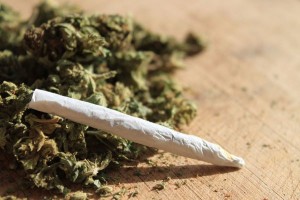 Hold a conversation with a local and the issue of illegal drugs is not too far away from their conversational toolbox. But drugs are more than just material for chit chat; there is a real concern amongst people – of illegal drugs and the trail of crime and destruction they leave behind.
Hold a conversation with a local and the issue of illegal drugs is not too far away from their conversational toolbox. But drugs are more than just material for chit chat; there is a real concern amongst people – of illegal drugs and the trail of crime and destruction they leave behind.
Cannabis in particular is a drug du jour, with a lot of befuddlement created by the downgrading and then subsequent U-turn and re-upgrading of the drug.
It seems we occupy a hazy dust storm, mushrooming itself into a never ending cloud when it comes to cannabis.
But in amidst this mist filled existence are those battlers who continue to fight to educate, prevent and possibly help cannabis users back on track. John Fox is part of the Inspire team at Kirklees Lifeline, who rather than marginalise drug users look to engage with them and help them to help themselves.
“We deal with anything from cannabis to heroin and we do structured interventions, psychosocial interventions, to help people have a look and change their behaviours around their drug use – whether that’s them wanting to become abstinent or whether that’s them wanting to control the substance that they’re using,” says John sat in the bowels of IMWS.
There’s a glint of optimism in his vocals, whilst also a feeling of caution. A man who has been at the forefront of helping drug users for 10 years, he knows the challenges.
“We see a lot more cannabis referrals coming in and cannabis is kind of widespread in this area,” he says.
John points to the flip flopping between the classifications as one of the reasons this may be the case. He told Paigaam, “I think it comes down to when cannabis went down to class C everyone had this idea that it had kind of become lawless.”
West Yorkshire seems to be a hotbed of cannabis farms, with the authorities fighting what seems like a constant battle to stop the drug being grown. Speaking to Paigaam John said: “It’s so readily available it’s kind of on a par with alcohol as being a recreational drug nowadays.”
When it comes to the south Asian community especially in these parts where the majority are from the Islamic faith, there seems to be a general feeling that drugs aren’t necessarily an issue. But like a wide trawlers net, certain fish inevitably escape through the gaps.
“I think in every community, cannabis is a problem, and I think just as much in the south Asian community. As there is any other community there probably is a problem with cannabis,” warns John.
But the alarming accessibility of the drug is usually undercut by the myth that cannabis is in actual fact a harmless drug. As John points out, cannabis can induce psychoses in people with underlying mental health problems, and then there is the obvious issue of smoking cannabis with tobacco.
However there is a more concerning trend with the now class B drug being bred to create stronger strains.
John says: “At this moment in time cannabis is probably one of the drugs that has gone up in purity so it’s gone up in strength. Whereas other drugs, there street levels have gone down in purity.
“It’s mass produced, manufactured, farmed to become stronger. They breed the plants so you get a higher tier content which gives you a stronger high.”
Kirklees Lifeline work by doing an in-depth assessment into the lifestyle of the user, looking at their peer groups, craving triggers and looking to alternative activities to diverting their time.
They mainly deal with older users, with a dedicated young people services helping younger cannabis users.
Twirling his mug filled with piping hot coffee on a tepid autumnal day, John fires a warning. Despite primarily working with over-25s, John says, “The older users have used from young ages, maybe ranging starting from 12 to 16, most of them have smoked cannabis for 10 to 15 years.”
To help those who have fallen through the net, John admits that he and his colleagues use the r-word that most militant atheists dread. Religion. He says they have in the past dealt with Muslims who have fallen into drugs, by trying to get them reintegrated with their local mosque.
Emphasising the importance of the community working together to help one of its own. As he leans forward he extends an olive branch to those caught up or those with loved ones caught up with cannabis. Regardless of age or situation he says, “We’re always there to advise.”
Tell-tale signs to look out for
So what should a concerned parent look out for and or do if they fear that their precious offspring has become entangled with cannabis?
John Fox of Kirklees Lifeline explains, “Cannabis lowers the blood sugar levels people will probably start to eat a lot of sugary stuff, appetite might go up. A sleepy look, red eyes. They might look very relaxed. Maybe there’s a smell as well, skunk kind of sticks to the clothes – it’s a unique smell once you’ve smelt it.
“They could have mood swings. Lack of interest in hobbies, they might lose their motivation to do a lot of stuff. But you don’t want them to get mixed up with teenage behaviours.”
